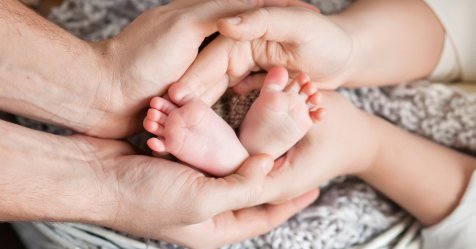|
Developing a comfortable and healthy relationship with our baby is perhaps the single most important role we can fulfil as a parent. Being with our babies in a relationship where we are present and attuned to their needs, helps them experience what it is like to feel safe and secure. This is the foundation babies need to develop positive feelings about themselves, thereby setting them up to optimise their full potential. As well, this first relationship with their parent serves as a blueprint for many future relationships in their lifetime. Feeling heard and understood and having emotional needs met helps individuals function productively in relationships. It it safe to say that every parent has the best intention for an unblemished relationship with their child, yet this does not always go to plan. We can hit bumps in the early weeks or months of being a parent leaving us feeling doubtful about this new relationship. We may feel anxious, lost, even frightened of this much anticipated new arrival. For many parents, there can be feelings of aloneness or emptiness - a contrast to the joy they may have expected. What can follow are feelings of guilt, even shame, for not enjoying the parenting journey, compounded by crippling thoughts of being a bad parent. So powerful can this state of mind be that parents describe feeling stuck or frozen - caught between their internal turmoil and desperate attempts to care for the baby they so love and cherish. Human beings are complex. Each of us carries a story about relationships, and it begins with the people we first formed them with – our parents. This very first relationship has significant impact on the way we view ourselves and our place in the world. We develop emotional and behavioural patterns from these relationships and they become a part of ‘who we are’. For example, we might find that we are sensitive to a certain look or a tone. A look or a tone that can seem harmless enough, yet is able to rouse an emotional response so powerful and strong within us. Why is that? It is possible that the look or tone is familiar to us somehow, triggering emotions associated with our very early experiences of being in relationship with significant adults when we ourselves were children. This unique experience does not live in our awareness; it is embedded deep within us. Sometimes these emotional reactions are positive - received like a warm blanket. Other times they are negative and we feel alone and vulnerable, unprotected, unheard or misunderstood. Either way, they are feeling memories arising from our early relationships. Because of the closeness of the parent-infant relationship, our babies’ behaviour can inadvertently trigger old unresolved dynamics from our early relationships. Some parents experience feelings of anxiety or dread when their baby signals a need for proximity and comfort through crying or unsettledness. Others experience sadness, alarm or a feeling of rejection when their baby crawls away from them to explore the environment. Even though we may reasonably acknowledge that babies lack the sophistication to deliberately upset us, the emotions stirred up in us are so strong that it’s easy to think they are doing just that. What is not available to us at the time, is the knowledge that our baby’s behaviour is merely triggering our own experiences of unmet needs from our childhood - our parents’ own struggle with providing comfort when we needed it, or their discomfort with supporting our need for autonomy and independence. Making sense of our childhood experiences helps us to be more open to seeing our babies’ needs as separate to our experiences. It might give us the space to feel at ease with our babies, attending to their needs and connecting with them in the way we intend. It frees us up to have the kind of relationship with them that reminds them that they are special to us and that we can support them with both their need for comfort and their curiosity for learning about the world around them. It is also important to remember that as much as we wish, we will never have the relationship running ‘right’ one hundred percent of the time. After all, experiencing pain and disappointment is part of the territory of being human. If we get it right enough of the time, we are doing a good enough job. Equally important to remember is that repairing the relationship with our child when we recognise we have missed the mark, is a powerful human gesture. Repairing and rebuilding teaches children important lessons of trust and hope. It gives them scope to be imperfect but still loved. Tips
This article was written by Psychologist, Kanthi Sayers from the Antenatal & Postnatal Psychology Network. Kanthi draws on the theoretical underpinnings of attachment theory and the teachings of Circle of Security. www.circleofsecurityinternational.com Reference Hoffman, K. Cooper, G., Powell, B. (2017). Raising a Secure Child: How Circle of Security Parenting can help you nurture your child’s attachment, emotional resilience, and freedom to explore. New York: The Guildford Press. www.antenatalandpostnatalpsychology.com.au www.facebook.com/antenatal.postnatal.psychology Comments are closed.
|
AuthorPosted by Dr Renée Miller Topics
All
|
|
We acknowledge and pay respects to the Elders and Traditional Owners of the land on which our psychologists practise.

 RSS Feed
RSS Feed

